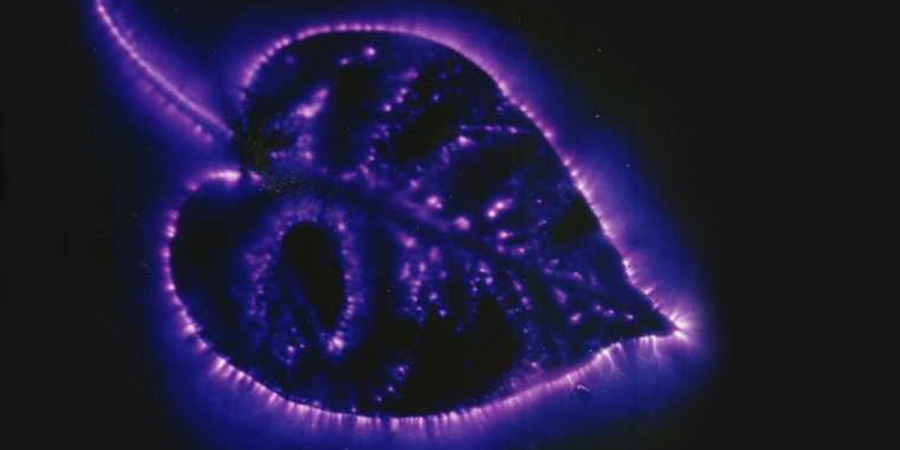

In alien abduction stories, "implants" refer to small, often microscopic, devices that are allegedly inserted into the human body by extraterrestrial beings. These implants are claimed to serve various mysterious purposes, from tracking individuals to influencing their thoughts or behaviours.
These objects are typically described as being very small, often only a few millimetres in size, and can be composed of a variety of materials, including metals and organic compounds. The supposed insertion points are usually in less conspicuous places, such as behind the ear, in the nose, or in other areas that are not easily visible.
Individuals who believe they have been abducted by aliens often report the discovery of these implants in several ways, including during routine X-rays or MRIs, which reveal small, unexplained objects within their bodies. Others report experiencing sensations of discomfort, pain, or even a slight buzzing feeling at the site of the implant, while some abductees are able to recall the moment they received the implant.
The exact purpose of these implants is debated, but perhaps the most commonly proposed function is that implants are used by aliens to monitor and track abductees. This would allow extraterrestrials to keep tabs on the whereabouts and activities of individuals over long periods of time.
More speculative theories suggest implants might be used to influence or control the thoughts and actions of the implanted person. Another possibility is that they collect biological data from the human host, helping aliens study human physiology, health, and genetics.
While many people have claimed to possess alien implants, the physical evidence for alien implants remains highly contentious. Some researchers have claimed to have extracted implants from the bodies of supposed abductees. However, when subjected to scientific testing, the results are typically inconclusive and lack any unique properties to suggest extraterrestrial origin.
Many supposed implants that have been extracted do not exhibit any discernible functionality. If aliens were to implant devices for tracking or mind control, they would be expected to have some kind of detectable operation.
If someone suspects they have been implanted with an alien device, they might be hesitant about seeking professional medical advice. However, it's possible that some individuals who believe they have an alien implant might be overlooking a more serious and genuine medical issue.
People who suspect they have alien implants might attribute unexplained symptoms or discomfort to the implant rather than seeking medical evaluation for other potential causes. Symptoms like persistent pain, swelling, or unusual sensations could be signs of serious medical conditions such as infections, tumours, or neurological disorders. Misattributing these to an alien implant can delay appropriate diagnosis and treatment.
Medical professionals often offer more conventional explanations for these objects, such as fragments from previous surgeries, injuries, naturally occurring bodily calcifications, foreign bodies such as shrapnel, or even splinters. Medical professionals generally do not recognise these objects as evidence of alien intervention and often attribute them to natural or accidental causes.
The described technology of alleged implants often appears primitive compared to what might be expected of an advanced extraterrestrial civilisation. Simple metals or tiny chips do not align with the notion of highly advanced alien technology. If these aliens can navigate the expansive void of space, they would surely be advanced enough to create undetectable implants, perhaps even ones so small they cannot be seen with the naked eye.
Plus, if an alien civilisation is advanced enough for interstellar travel, would they feel it appropriate to resort to such invasive and detectable methods? It is logical to assume that aliens would have non-invasive means of achieving the same goals. Advanced surveillance or remote sensing technologies would likely be far more efficient and less detectable.
The lack of verifiable evidence, alternative medical and psychological explanations, and technological inconsistencies all pose significant hurdles to accepting the existence of alien implants. Until more concrete, reproducible evidence is presented, the concept remains a contentious one.
More Essential Parapsychology
See All
ArrayOctober 11, 2024
The Reality Behind Kirlian Photography’s Glowing Auras

ArrayOctober 07, 2024
Could Retroactive Psychokinesis Allow Us To Influence The Past?

ArrayOctober 05, 2024
What Spontaneous Cases Are & Why Parapsychologists Research Them
Further Reading
Dive into the world of the paranormal and unexplained with books by Higgypop creator and writer Steve Higgins.

The Killamarsh Poltergeist
The story of a family in Killamarsh experiencing strange and unexplained events in their home.
Buy Now
Demystifying The Oracle
A balanced look at Ouija boards, exploring whether they are toys, tools, or dangerous occult devices.
Buy NowMore Like This

UfosApril 12, 2025
What Do Astronauts Say About UFOs?

UfosApril 04, 2025
David Grusch Claims US Government Possesses Multiple "Non-Human" Craft
 See More on Audible
See More on Audible



Comments
Want To Join The Conversation?
Sign in or create an account to leave a comment.
Sign In
Create Account
Account Settings
Be the first to comment.